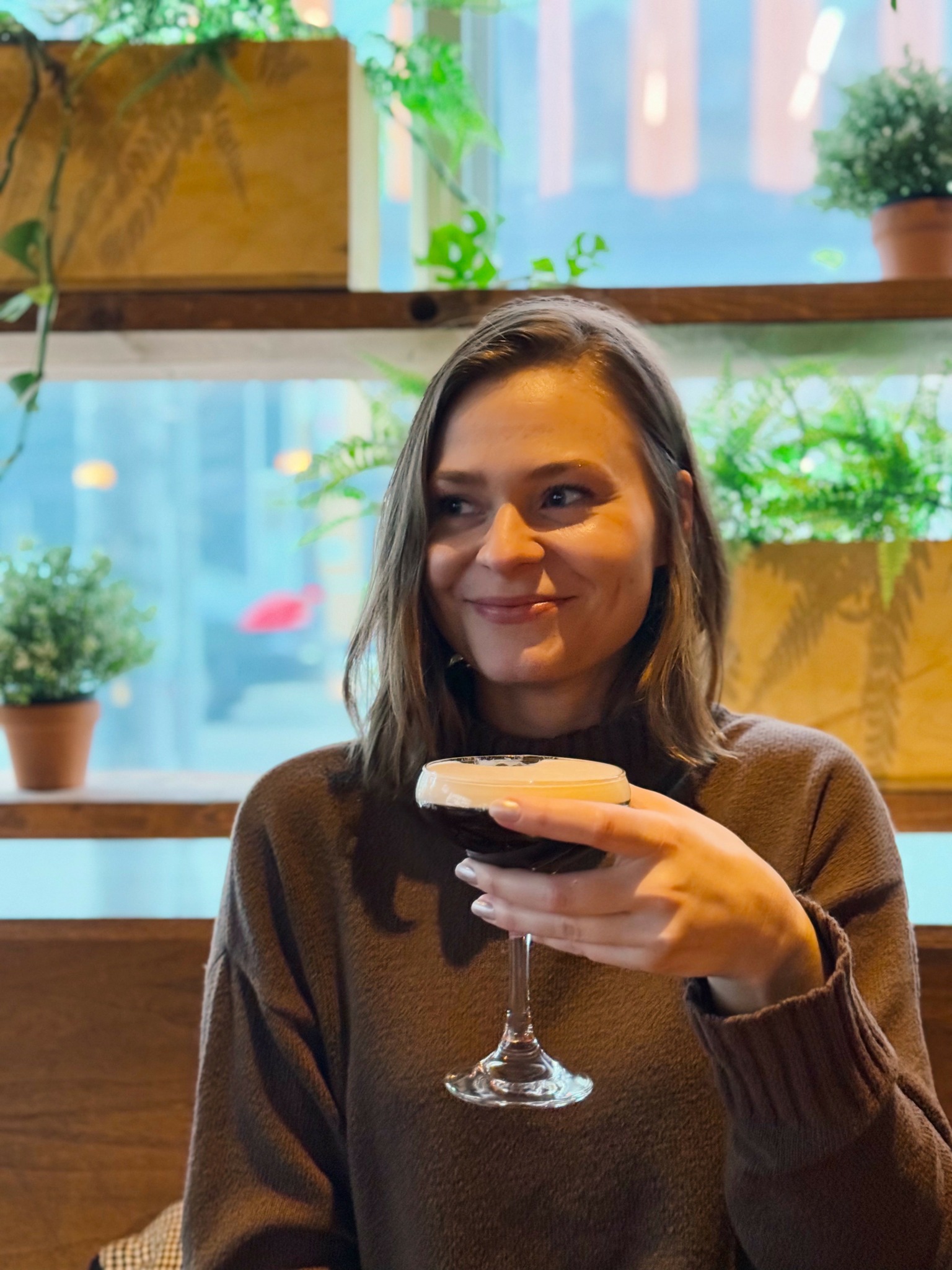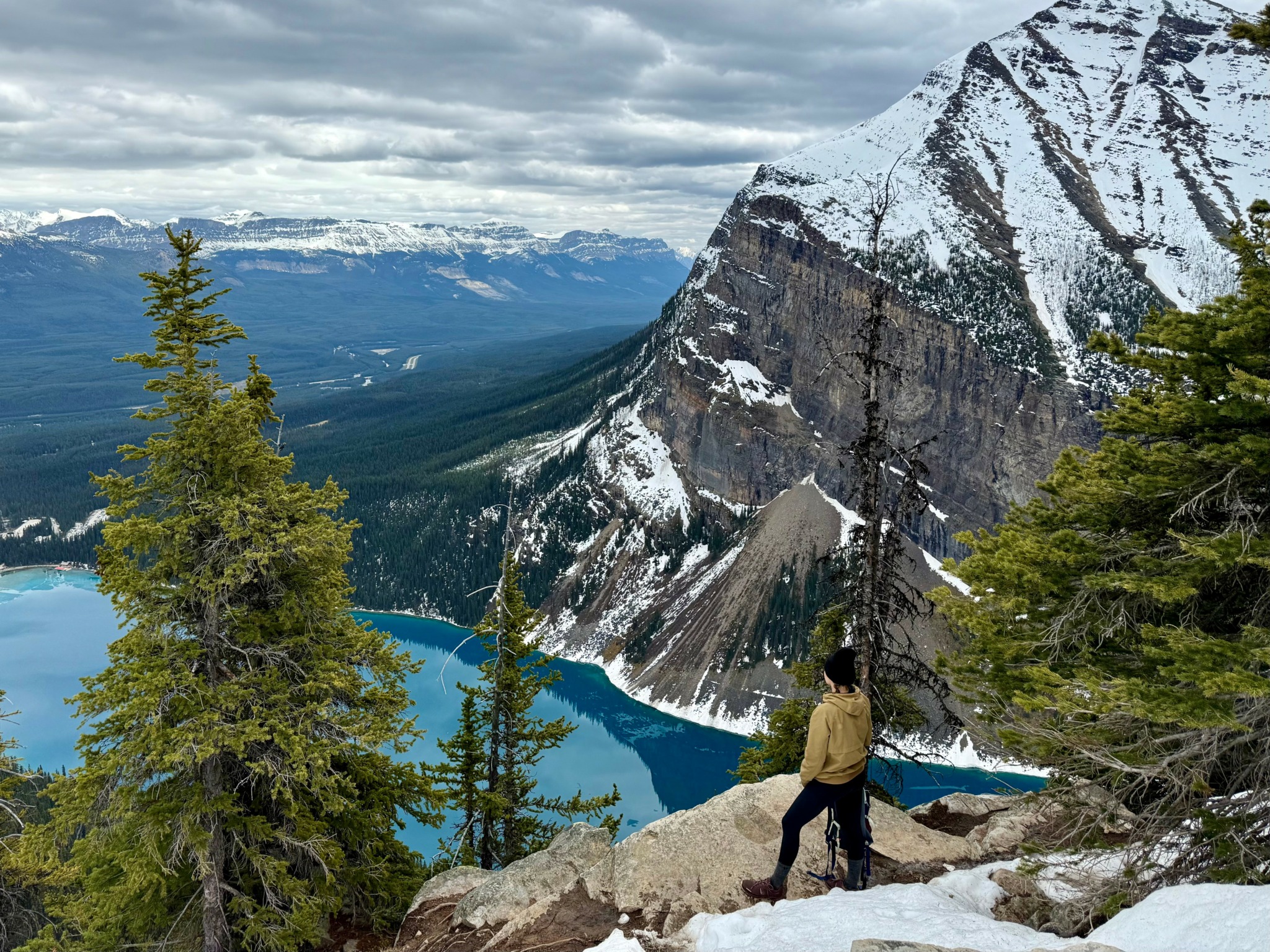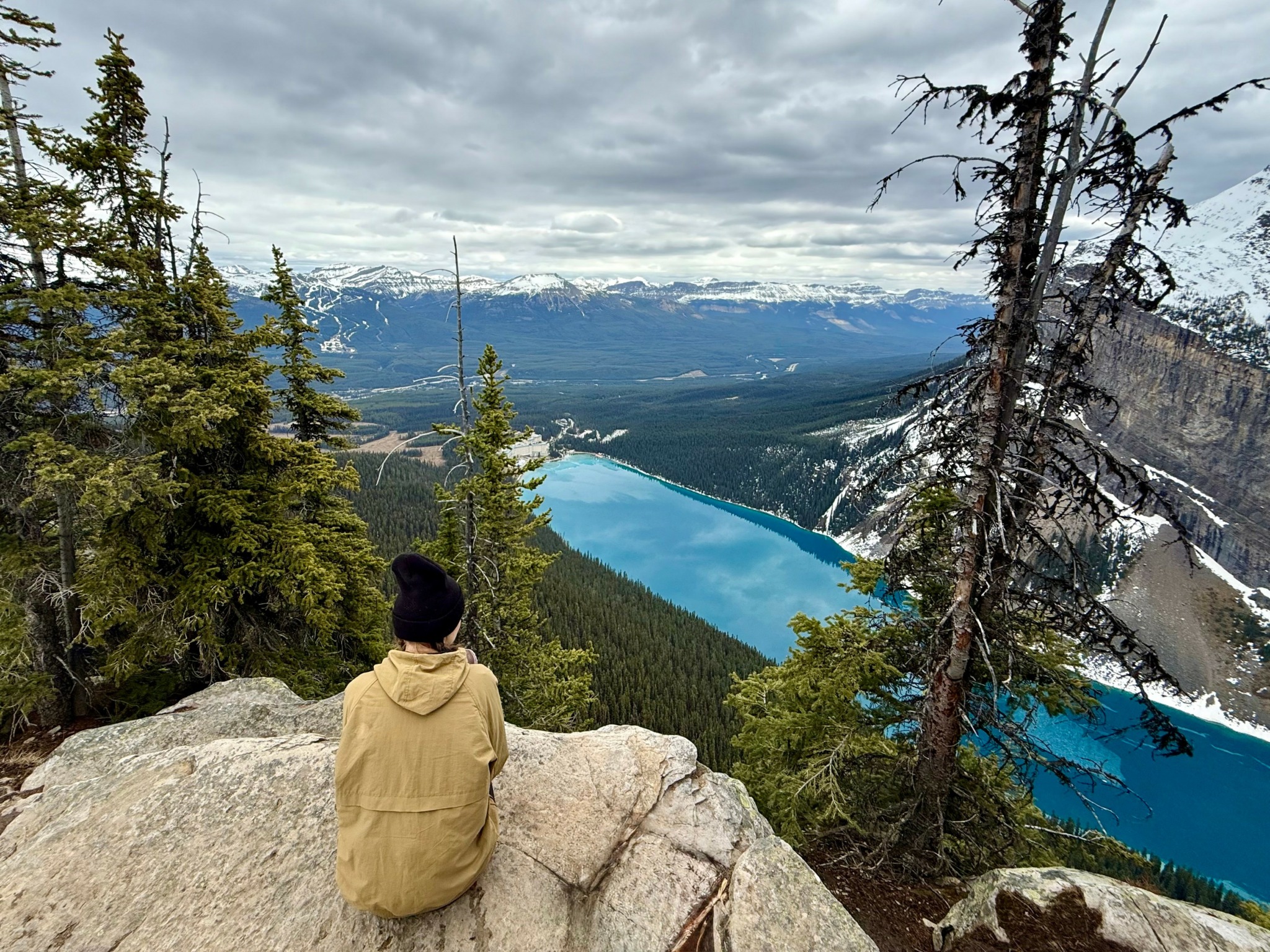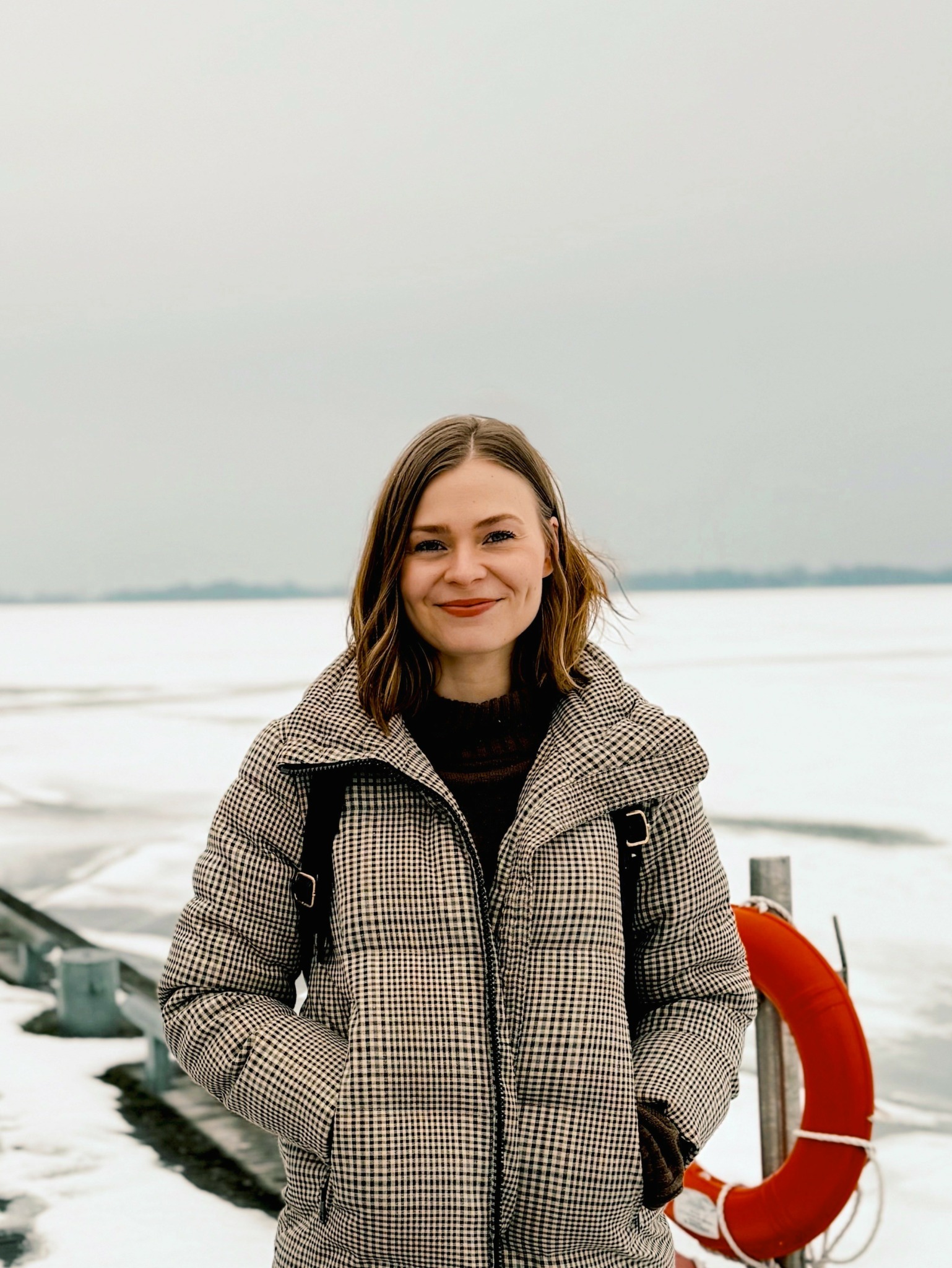We were lucky to catch up with Ruth Economy recently and have shared our conversation below.
Ruth, thanks for joining us, excited to have you contributing your stories and insights. We’d love to hear about a project that you’ve worked on that’s meant a lot to you.
The most meaningful project I’ve worked on this year has been launching my blog, Catching Economy. Writing has always been a lifelong passion, and I finally created a space to express it fully.
As a young adult, I spent years exploring the world—immersing myself in new cultures and documenting raw, unfiltered moments that shifted my perspective. But after experiencing a profound loss at 23, I lost touch with the adventurous, creative spirit that once defined me. I built a life centered on stability, routine, and safety—and in doing so, drifted from the dreams and passions I once held close.
Approaching 30, I felt a pull back to myself. Launching this blog has been part of that return—a way to embrace uncertainty again and trust the process of growth. Through Catching Economy, I’m combining my love for travel, writing, and personal exploration to share stories that reflect the human experience—stories of challenge, healing, beauty, and hope. My goal is to foster connection and remind others that they’re not alone in their journey.

Awesome – so before we get into the rest of our questions, can you briefly introduce yourself to our readers.
For as long as I can remember, I’ve been drawn to storytelling—first through my love of music and lyrics, and later, through writing.
It was through song lyrics that I first experienced the impact of connection. An artist could articulate what I was feeling, give voice to my pain—or my joy. I listened to the radio religiously, memorizing singers’ voices. I absorbed everything I could about their lives—how they got their start, what inspired their songs. Burning CDs, scouring Myspace for undiscovered music, and bingeing music documentaries on Netflix became routine.
Then, one summer when I was 16, I opened a school notebook and flipped past my history notes to a blank page. At the time, I was fascinated with the ’60s and ’70s—the music, the counterculture, the free-spirited ideals. Out of nowhere, maybe out of sheer summer boredom, I started writing a poem about how I wished I had lived in that era. It was simple, probably only a few lines, nothing remarkable. I don’t remember the words, but I remember how it felt—to put something on paper, to craft an idea into something artful, to search for the right word to make it rhyme.
That was the moment something flickered inside me.
All those years of studying songwriters, admiring their ability to express themselves, and suddenly, I realized I could do that too. I couldn’t sing or play an instrument, but I could put pen to paper. I began writing obsessively, using it as an outlet for thoughts and emotions I would never have otherwise revealed. Without knowing it, I was teaching myself the art of expression—and eventually, the power of connection.
When senior year of high school arrived, I knew I didn’t want to go to college. I wasn’t sure what I wanted to study, and I had other priorities. I wanted to travel. I needed to see the world. I had to trudge through international airports, collect passport stamps, and get lost in foreign cities. I craved novelty—new sights, sounds, and experiences. I was young, and my only direction was everywhere.
So that’s what I did.
I joined an international volunteer organization that took me to Brazil, Australia, India, and South Africa. For the next five years, I spent most of my time abroad. I documented my travels through journals, worked in the organization’s media department writing and editing articles, and somewhere along the way, I realized I wanted to be a travel writer. I even dreamed of publishing a magazine or online journal, collaborating with the talented photographers and fellow travelers I had met. It all felt possible.
Then, one month after my 23rd birthday, my brother Jesse took his life. He was only 24. If you’ve ever lost someone suddenly—especially to something as devastating as suicide—you know how it turns your world upside down. Everything stops except the pain, pulsing like a half-beating heart; the only indicator that you’re still alive. Your system shuts down, conserving what little energy it can. In that space, hope feels impossible. Dreams feel irrelevant.
In those first weeks, maybe months, I journaled prolifically. I had to. The grief was too much to keep inside—it would have hardened, crystallized into something unmovable. Writing was survival. But eventually, I stopped. I had burned out every last word, drained every lament I could possibly put on paper. And then, there was nothing.The passion that had once fueled me, that had pushed me toward my dreams, was gone. The fire had gone out, and in its place was a dark cavern that I hid myself in like a wounded animal.
In the years that followed, I built a neat, conventional life for myself– patching the holes with routine and normalcy, as if that alone would save my sinking ship. I moved back to North Dakota from where I had been living in Perth, Australia. I earned a college degree, got a job, and lived in a home. Spent lots of time with my family. It all kept me afloat… for a while. But something started to shift in me around my 29th birthday. I felt uneasy about having just one year left of my 20s– a decade that had started out with wild pursuits and endless possibilities. I used to be someone who dreamed, created, traveled—obsessed over music, new experiences, and the thrill of the unknown. Just how far had I buried myself in that cave?
It took time—and the complete unraveling of the carefully constructed world I had built to keep me safe. Safe from dreaming and failing, from hoping and succeeding, from uncertainty and vulnerability. Safe from truly putting myself out there and stepping into my fullest potential—perhaps the most threatening thing of all. But I’ve finally arrived at a place where I know where I’m going and why. Picking up where I left off all those years ago—a little rougher around the edges, but more determined than ever to chase and fulfill the dreams I had once buried.
In an effort to cultivate the same sense of connection that once comforted me through others’ words and experiences, I want to share my own stories of challenges, growth, life lessons, beauty, and inspiration.

How about pivoting – can you share the story of a time you’ve had to pivot?
I lay on a hammock in my best friends’ backyard— the ones who had graciously let me crash at their place until I could get my feet back on the ground. The sun was warm against my skin. I was reading The Alchemist—one of many spiritual, self-help, soul-seeking books I would turn to that summer (and one I would highly recommend). I set the book down and stared up through a canopy of shifting leaves, the sunlight filtering softly through the branches.
I had just recently quit my stable, full-time job to start my own interior design business, and ended my five-year relationship—two of the most difficult choices I had ever made. In the intensive process of coming to these decisions, I had come across a theory: the Region Beta Paradox. It’s the idea that we often get stuck in not-so-bad situations simply because the discomfort isn’t severe enough to push us to act. When things are just uncomfortable enough to cause some dissonance, but not so painful as to be intolerable, we tend to stay put, convincing ourselves it’s better than the terror of the unknown.
This hit close to home. I had moved through my mid-late 20s, making decisions based more on convenience, comfort, and the expectations of others than on my own true desires. I realized that I had settled into a life that was fine—stable, predictable, even comfortable at times—but not truly fulfilling. I had spent years in relationships that didn’t align with who I was—or who I wanted to become, jobs that no longer fit, and routines that dulled my sense of wonder. They were safe, and I had built my life around that safety, believing it was the responsible thing to do.
First, my grandpa passed away in early spring of that year from a rare, aggressive form of cancer. My sisters and I traveled to Arizona to be with him in his final days, joining other family members who had gathered to say their goodbyes. There’s something about witnessing a loved one at the end of their life that forces you to reflect on your own. I watched as he shared stories from his youth, expressed his gratitude for his family, and never missed an opportunity to crack a joke, even with the weight of his situation: “You’re not allowed to cry,” he said with a wink. In those moments, I couldn’t help but wonder what kind of life I wanted to look back on one day.
The second push came with the approach of my 29th birthday. While still young by most measures, I felt the passing of time more keenly than ever. Even if you’re fortunate enough to live a long life, it moves faster than you expect. I realized I had a choice: I could continue drifting passively through my days, clinging to the comfort of the familiar, or I could start taking risks and be more intentional about the life I wanted to build. I needed to start choosing growth over comfort—to let go of the good for the possibility of something truly great.
So, I did the hardest thing. I left. I unraveled the life I had spent years weaving together, stepping into a chaotic, uncertain, but strangely hopeful new chapter.
Making that decision was hard—but what came afterward was much harder.
I remember a great deal of outpouring through journaling during this time—a tool I had relied on to process my emotions since my late teens. Day after day, I lamented in the pages of my journal and Notes app. Did I make the right choice? Am I really strong enough to build a life on my own? Am I really smart enough? What was so wrong about my past life, anyway? Was I just being ungrateful? Did I need a new perspective? Or was I truly meant for something more?
I felt the nauseating push and pull of fear and doubt in the rising tides of uncertainty.
My life had suddenly turned into a pile of rubble I was sifting through each day, searching for pieces of myself—my dreams, my goals, who I was, and who I wanted to become. I was constantly digging through layers of fear, grief, doubt, insecurity, and comparison, hoping to find clarity amid the chaos. But most of all, hoping to answer the ultimate question: What do I want?
“And, when you want something, all the universe conspires in helping you to achieve it.”
The famous line from The Alchemist echoed in my mind, settling somewhere deep in my soul.
I had recently turned 29. I’m supposed to settle down now, right? Find my life partner, start a family. That must be what I want. That must be my purpose, my treasure—the whole reason I walked away from my former life.
I threw myself into researching healthy relationships, understanding my values, and figuring out what traits often make for lasting partnerships. I studied compatibility, the qualities to look for in a partner, and the red flags to avoid—anything I could get my hands on to help me break old patterns and choose differently this time.
I even tried dating a different type. I looked for men who were emotionally available, took an interest in my life, showed a desire for personal growth, valued family and relationships, and had passion for their work. Each date seemed promising, and I tried to keep an open mind. But that “something special” was always missing. That something truly great.
Perhaps the hardest thing I had to confront was the deep void of loneliness—something I had been running from for too many years. There were several moments throughout my life when I distinctly remember facing a choice: embrace loneliness and grow, or retreat to what felt familiar and safe. Each time, I chose comfort over growth, telling myself I wasn’t strong enough, that I couldn’t tolerate the unbearable weight of being alone.
I remember one day that summer, sitting on the edge of my bed. I had been journaling again, dissecting my past patterns, when it hit me—I had to face the loneliness. I had spent most of my life seeking out relationships and distractions to drown out that howl—hungry and relentless. I had never slowed down long enough to really sit with it, to let myself truly feel it.
But this time, I let it creep in. I reached for nothing and no one, instead embracing the void like an old friend. I told myself: There is only forward. You can’t go back. It’s okay to be lonely. You’re not going to die. And you’re not going to stay in this place forever.
This was a process I would continue to work on. And what I eventually learned was that loneliness itself isn’t as terrible as the fear of being alone. That it’s crucial to fortify a relationship with myself—to make peace with boredom, not constantly chasing the next high or distraction—until I finally arrived at a place where I felt whole and content on my own. The beauty of emptiness, is that it allows space for something new to grow.
“Tell your heart that the fear of suffering is worse than the suffering itself. And that no heart has ever suffered when it goes in search of its dreams, because every second of the search is a second’s encounter with God and with eternity.” —The Alchemist
When I wasn’t busy laying the groundwork for a healthier future relationship and sorting my emotional wreckage, I was pouring my energy into building my new business—interior design. Or at least, what little energy I had. I wasn’t prepared for the waves of grief and the low, heavy feelings that followed the breakup. I know it seems obvious, but it took a long time to start feeling like myself again.
But still, I persisted. I focused on the few projects I did have, grateful for every opportunity, while also working on advertising and getting the word out. It felt like I had this enormous mountain to climb, trying to reach stability in both my work and personal life. If you’ve ever gone off on your own and tried to build a business from scratch, you know how hard it can be to find clients and keep steady work—especially in a creative field.
A reasonable question to ask is, why did I choose self-employment in the first place? Why not just find another job?
I enjoyed the creative work of interior design, but I craved the freedom and flexibility that comes with being your own boss. I wanted the potential to earn more, set my own schedule, and work on projects that truly inspired me. Plus, there aren’t many design studios in the area where I live, so striking out on my own felt like the only real option if I wanted to stay in this field.
It was a huge risk—one that I’m surprised I actually had the nerve to take. But it was the same leap of faith in both my personal and professional life. I wanted to carve out my place in the world and strengthen who I was as an individual. I’d spent too many years relying on relationships for comfort and security, always building my life around someone else’s. But now, I was stepping out into an ocean of uncertainty, terrified but determined to create a life that felt like my own.
I was betting on myself, and believing that I would win.
Somewhere between deep chats around the bonfire with friends, concerts, lake time, one too many IPAs, soaking up every drop of sun, and living through the raw, unfiltered moments of my self-employed, post-breakup life, summer slipped quietly into autumn—almost without me noticing.
Another season, I thought, a bit apprehensively. And life still wasn’t quite making sense. I was still living in my friends’ spare bedroom. Still struggling to find my financial footing with my business. Still navigating the confusing waters of singleness and dating. The blown-up pieces of my world hadn’t settled back into place. I think, foolishly, I expected everything to come together right away. I made the hard decisions, took the risks—so where was the reward?
What I didn’t understand at the time, or maybe just wasn’t ready to accept, was that I was the reward. I had been so focused on external markers of success for validation… what society deems important and acceptable. But my business didn’t take off right away, and I didn’t find a partner. Instead, I found the pieces of myself I had so freely abandoned over the years—pieces I had given up to maintain relationships, survive grief, or meet other people’s expectations. Like my love for writing, which I had pushed to the back burner in favor of stability, or my sense of adventure, which I had traded for routine. Or even my voice, which I had muted to avoid rocking the boat.
That was the prize, the real success. The purpose for that season: unraveling to rebuild.
___________
Within a year of embarking on this solo journey—both in work and in life—I started gaining clients and projects on a regular basis. I moved out of my friends’ spare bedroom and into my own apartment. It took longer than I would have liked, but living in that space of uncertainty stretched my patience and faith like never before. It showed me just how resilient I could be. There were many times I thought, I could just get a job. I don’t have to keep agonizing over this instability. Or maybe I could just go back to my old life, it would be so much easier. But something inside urged me to keep moving forward—and this time, I listened. Instead of retreating into fear like I had in the past, I chose to trust that quiet instinct and see where it would lead.
Looking back, I’m glad I stuck it out long enough to see my persistence pay off. To prove to myself that I was strong enough. Smart enough. Capable enough. To gain ownership of my decisions, knowing that I was on the right path.
Building my interior design business pushed me to step outside my comfort zone, to bet on my own ideas, and to trust my instincts. It taught me to advocate for myself, to navigate uncertainty, and to stand behind my creative choices. It was a powerful exercise in self-reliance, but it was only one part of the bigger picture.
The deeper work was rebuilding myself outside of a relationship. I had spent years making myself smaller to fit into someone else’s life, often compromising my own wants and needs. But choosing to bet on myself—in life and in work—meant rediscovering my voice, my direction, my purpose.
That whole process, as challenging as it was, paved the way for something even more special. It prepared me to pursue a passion I had long neglected—to write, to connect through shared experiences, and to hopefully inspire, encourage, and remind others that they’re not alone. To prioritize traveling and rekindle that sense of wonder that I once had and get the most out of life. To take a risk on something creative, something vulnerable. Something meaningful. Something truly great.

Is there mission driving your creative journey?
Absolutely. My hope is to reach as many people as possible through my personal stories—not just to share my experiences, but to create connection. I write about grief, trauma, and difficult life shifts yes, but also about hope, healing, and the quiet strength that comes from facing life’s hardest moments. I want people to know they’re not alone, and that healing is possible.
Through my work, I hope to encourage others to find their purpose, step outside their comfort zones, and keep chasing their dreams. To dig deeper. To live fully. To get everything they can out of life.
Contact Info:
- Website: https://www.catchingeconomy.com
- Instagram: @catchingeconomy
- Youtube: https://www.youtube.com/@catchingeconomy








